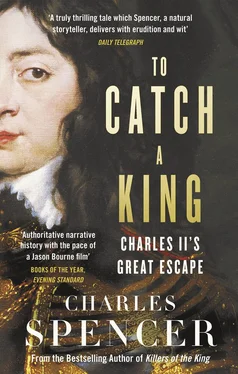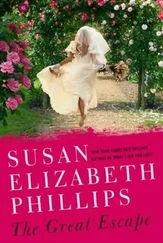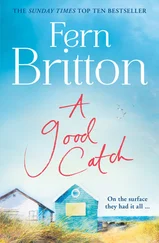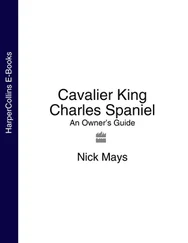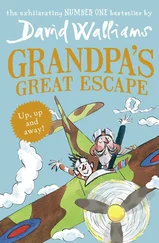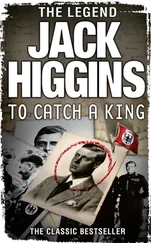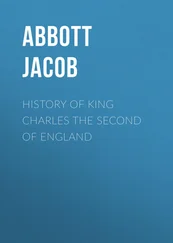PART ONE
KING OF SCOTLAND
1
Now all such calamities as may be avoided by human industry arise from war, but chiefly from civil war, for from this proceed slaughter, solitude, and the want of all things.
Thomas Hobbes, ‘De Corpore’, 1655
Charles, Prince of Wales, witnessed the English Civil War up close from its outbreak till its end. He was present at the battle of Edgehill, in October 1642. This was the first major engagement of a conflict that erupted over differences between the Crown and Parliament, concerning the limits of the king’s power, and clashing religious beliefs. Nine years later he would command an army at Worcester, the final action in the most bloodstained chapter in British history. By that time the Civil Wars in England, Ireland and Scotland had claimed hundreds of thousands of lives in the three kingdoms.
At Edgehill Prince Charles, then a twelve-year-old honorary captain in the King’s Horse Guards, had proved to be a handful. It had been hard to stop him from leading a charge against the rebel cavalry. At another point he and his younger brother James, Duke of York, were nearly captured, and had to take cover in a barn packed with wounded soldiers.
The boys had spent part of that clear autumn afternoon at Edgehill in the care of their father’s elderly physician, Dr William Harvey, the English authority on anatomy. It was Harvey who had, in 1628, been the first to write about the circulation of blood in the body. The distinguished doctor took the pair of princes to shelter under a hedge, where he hoped to divert them from the violent bloodshed taking place all around them by reading a book. This distraction did not go to plan, Harvey telling his biographer John Aubrey that ‘he had not read very long before a bullet of a great gun grazed on the ground near him, which made him remove his station’.1
Despite the dangers, King Charles I remained keen to keep his eldest son by his side during the first two and a half years of the conflict. Towards the end of 1644 he gave the fourteen-year-old prince the title ‘first Captain-General of all our Forces’, although such duties were in reality performed by the king’s nephew, Prince Rupert of the Rhine.
In early 1645, as Parliament began to gain a decisive upper hand in the war, Charles I decided to prevent the possibility of his being caught or killed at the same time as his heir. Keen ‘to unboy’ his son, ‘by putting him into some action, and acquaintance [him] with business out of his own sight’,2 he sent him away to his own, separate, command. The prince was created general of the Royalist forces in the west of England, with real responsibilities. On 5 March 1645 he parted from his father for what would prove to be the last time, riding out of Oxford into a ferocious rainstorm.
With the prince went an escort of 300 cavalrymen. He was safely delivered to Bristol, but it could easily have ended otherwise. On their return journey a large force of Charles’s guards were ambushed near Devizes, in Wiltshire. Forty of them were killed, while twenty officers were among the many captured Cavaliers.
A handful of advisers, hand-picked by the king, rode with Charles to Bristol. Prominent among them was Sir Edward Hyde, who had long been involved in the prince’s life. In early 1642 he had looked after Charles while his French mother, Queen Henrietta Maria, had sailed to the Continent to raise funds and forces for her husband. It was the start of a relationship that would run the gamut of service, trust, disappointment, triumph, rejection and disgrace.
Twenty-one years older than the prince, Hyde was at heart a traditional patriot who believed in political stability. He had hoped for a peaceful resolution to the tensions between Crown and Parliament, believing a compromise was both possible and desirable. But there was too much fear and suspicion on both sides for reason and sense to prevail.
As civil war became increasingly likely, Hyde’s hopes for order gradually turned him from being a critic of Charles I into a Royalist. When the king finally declared war, raising the royal standard at Nottingham in August 1642, Hyde was by his side. After that he lent his fine brain and brilliant oratory to Charles I’s cause. Hyde was made Chancellor of the Exchequer, the king justifying the promotion with a rather downbeat endorsement: ‘The truth is, I can trust nobody else.’3
Hyde found court life complicated. It was hard for him to negotiate a landscape that was pitted with factions, and where insincerity and self-interest were the perpetual themes. Meanwhile a supreme confidence in his own views made it challenging for him to accommodate those of others when they differed.
He brought this inflexible mindset on campaign, when he accompanied Prince Charles as he took up his command in the west. Hyde hoped to bring order to the Crown’s resistance there, but his prickly attitude, perhaps fired up by the raging gout that often dogged him, instead diminished what remained of morale in this corner of England. It was a sphere of the war that was going as poorly for the Crown as any other, not helped by the king’s leading generals in the region being at odds with one another. One, Sir Ralph Hopton, was a man of sobriety and religion, who once refused to join battle until his men had finished hearing divine service. Another, Lord Goring, was remembered even by his fellow Royalists as the epitome of the hard-drinking, roistering Cavalier. A third, Sir Richard Grenville, had been condemned as ‘traitor, rogue, villain’ by Parliament after switching allegiance to the Crown. Grenville, grandson of a great Elizabethan naval hero of the same name, had a violent temper and a reputation for ruthlessness in the field. He refused to serve under Goring or Hopton, and would be imprisoned for his disobedience.
Prince Charles arrived in Bristol in early April to find apathy among the area’s leading Royalists, and plague erupting in the city. He decided to move thirty-two miles south-west to Bridgwater, a town whose castle was believed to be impregnable, and whose governor, Sir Edmund Wyndham, he knew. Sir Edmund’s wife, Christabella, had been Charles’s wet-nurse and assistant governess from when he was one until he turned five.
Christabella Wyndham was noted for her great beauty, and for her bossiness. Samuel Pepys noted in his diary that she ‘governed’ Charles ‘and everything else … as [if she were] a minister of state’.4 Sir Edward Hyde dismissed her as ‘a woman of great rudeness and a country pride’.5 But she had her charms. Christabella, in her late thirties, and Charles, yet to turn fifteen, became lovers during his stay in Bridgwater Castle in 1645. Afterwards, far from exercising discretion, Christabella appalled the prince’s advisers by being shamelessly familiar with him, showering him with kisses in public. When Charles proved unable to concentrate on matters of state, thanks to Christabella’s distracting influence, his advisers moved him on from Bridgwater as quickly as they could.
That summer Parliament’s New Model Army arrived outside Bridgwater in huge numbers, to test its impregnability. Hearing that Oliver Cromwell, the rebel force’s second-in-command, was examining the town’s defences from the far side of its imposing moat, Christabella Wyndham decided to act. As an insult to the enemy, and as a reminder of her previous role as royal wet-nurse, she is reported as having exposed one of her breasts, picked up a loaded musket, and fired. The shot missed Cromwell, but killed his sergeant-at-arms.
The Roundheads, outnumbering the garrison by eight to one, attacked Bridgwater soon afterwards. With victory rapidly assured, the Parliamentary commander Sir Thomas Fairfax invited Sir Edmund Wyndham to recognise the hopelessness of his position and surrender. Lady Wyndham scoffed at the suggestion: ‘Tell your masters,’ she told the Parliamentary herald, ‘that the breast which gave suck to Prince Charles shall never be at their mercy. We will hold the town to the last!’ But Bridgwater was soon ablaze, strong winds whipping flames along as the enemy pushed forward, and Wyndham was forced to capitulate.
Читать дальше
